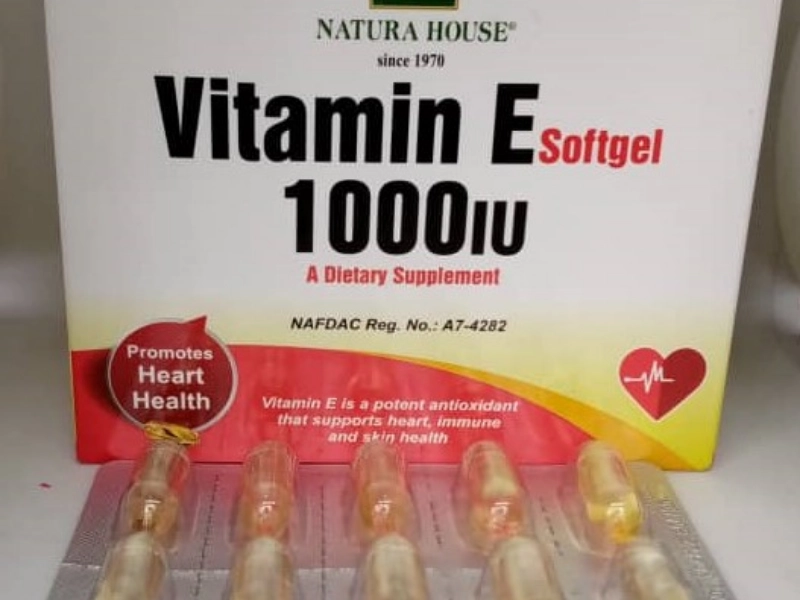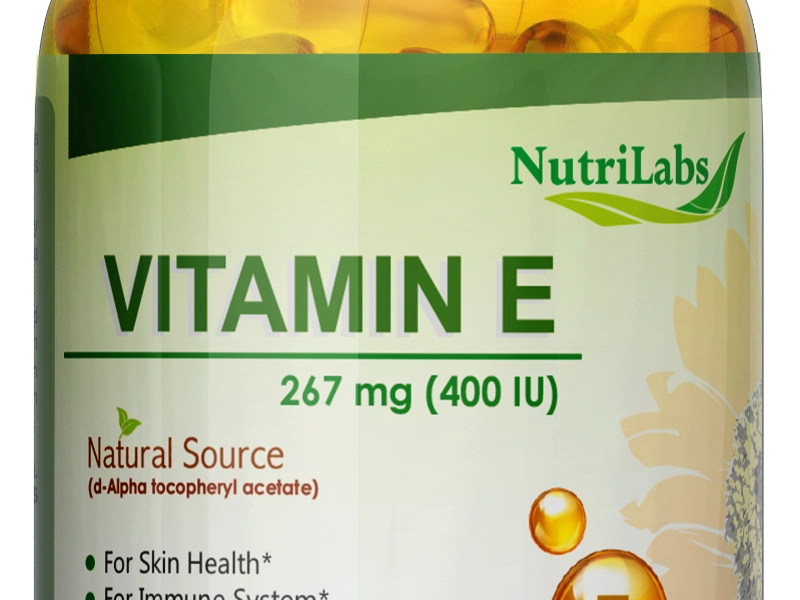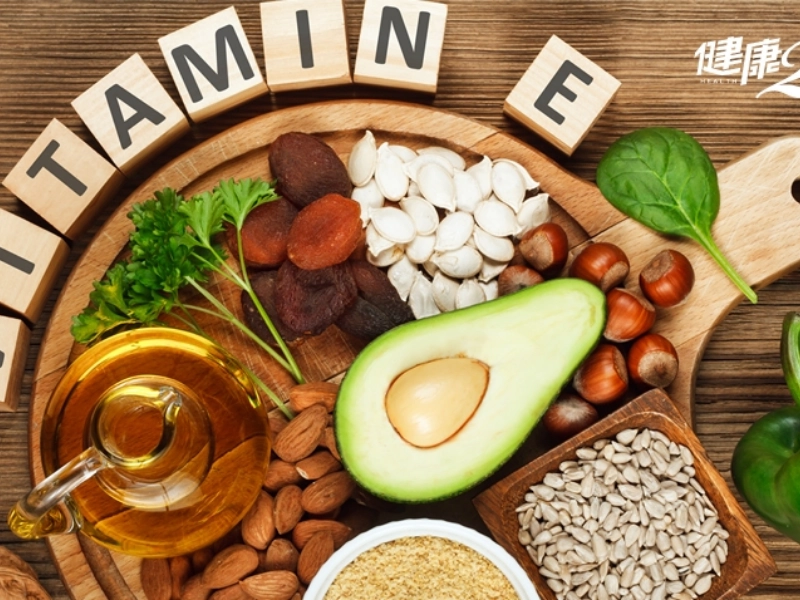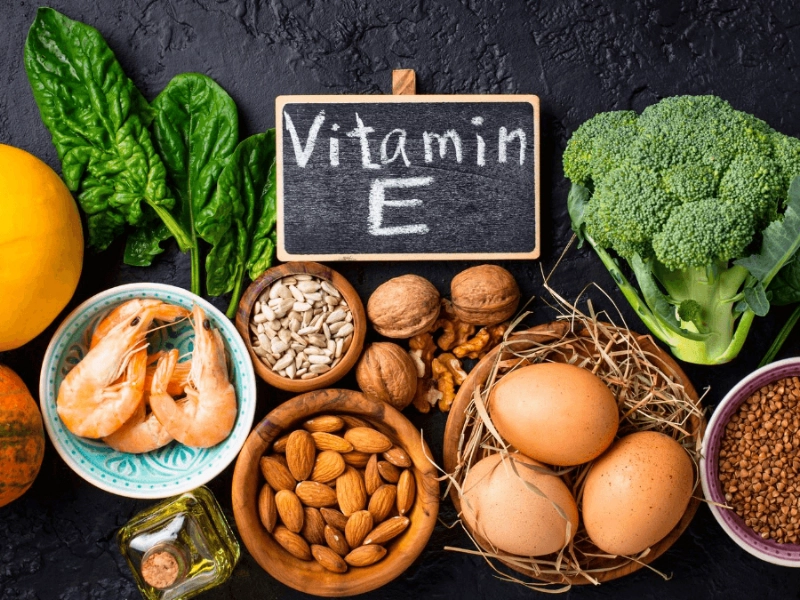Maintaining strong vision becomes much more crucial as we become older. Strong antioxidant vitamin E is quite important for maintaining eye health and preventing age-related visual issues. This vital vitamin shields the eyes from oxidative stress and inflammation, therefore preventing disorders such cataracts and age-related macular degeneration (AMD). Knowing the advantages of vitamin E for eye health can enable people to choose their diets wisely so as to support their vision as they get older.
 Compounds known as antioxidants aid the body to neutralise free radicals, therefore lowering oxidative stress and inflammation. Among the most powerful antioxidants, vitamin E especially helps shield the eyes from environmental harm like UV light and smog. The great metabolic activity of the eyes and their exposure to light make them especially prone to oxidative damage.
Free radicals help to produce cataracts and AMD by causing cellular damage in the lens of the eye and the retina. Including vitamin E into the diet helps people strengthen their antioxidant defences, so preserving their good vision over time. Studies have indicated that enough vitamin E intake could be linked with a reduced chance of acquiring various age-related eye diseases, therefore stressing its relevance for long-term eye health.
Compounds known as antioxidants aid the body to neutralise free radicals, therefore lowering oxidative stress and inflammation. Among the most powerful antioxidants, vitamin E especially helps shield the eyes from environmental harm like UV light and smog. The great metabolic activity of the eyes and their exposure to light make them especially prone to oxidative damage.
Free radicals help to produce cataracts and AMD by causing cellular damage in the lens of the eye and the retina. Including vitamin E into the diet helps people strengthen their antioxidant defences, so preserving their good vision over time. Studies have indicated that enough vitamin E intake could be linked with a reduced chance of acquiring various age-related eye diseases, therefore stressing its relevance for long-term eye health.
 Many foods contain vitamin E, hence including it into a balanced diet is really simple. With alpha-tocopherol the most physiologically active form of vitamin E, tocopherols and tocotrienols are the main forms found in humans. Nuts, seeds, vegetable oils, and green leafy vegetables are among rich sources of vitamin E in diet.
Among the finest sources of vitamin E are almonds, sunflower seeds, hazelnuts, and spinach. Along with vitamin E, these foods supply other vital minerals including vitamins, fibre, and good fats as well as Including several of these foods in your diet will help guarantee sufficient vitamin E consumption and support general health, including eye health.
Many foods contain vitamin E, hence including it into a balanced diet is really simple. With alpha-tocopherol the most physiologically active form of vitamin E, tocopherols and tocotrienols are the main forms found in humans. Nuts, seeds, vegetable oils, and green leafy vegetables are among rich sources of vitamin E in diet.
Among the finest sources of vitamin E are almonds, sunflower seeds, hazelnuts, and spinach. Along with vitamin E, these foods supply other vital minerals including vitamins, fibre, and good fats as well as Including several of these foods in your diet will help guarantee sufficient vitamin E consumption and support general health, including eye health.
 Leading cause of visual loss in elderly persons is age-related macular degeneration (AMD). Studies show that the development of AMD is strongly influenced by oxidative stress. With its strong antioxidant qualities, vitamin E might help preserve the macula—the area of the retina in charge of clear centre vision.
Higher dietary vitamin E consumption has been linked, according several studies, to a lower incidence of AMD. For example, individuals in the Age- Related Eye Disease Study (AREDS) who combined antioxidants—including vitamin E—were less likely to develop advanced AMD. Although a clear correlation is yet unknown, the data points to enough vitamin E intake perhaps helping to preserve vision as we age.
Leading cause of visual loss in elderly persons is age-related macular degeneration (AMD). Studies show that the development of AMD is strongly influenced by oxidative stress. With its strong antioxidant qualities, vitamin E might help preserve the macula—the area of the retina in charge of clear centre vision.
Higher dietary vitamin E consumption has been linked, according several studies, to a lower incidence of AMD. For example, individuals in the Age- Related Eye Disease Study (AREDS) who combined antioxidants—including vitamin E—were less likely to develop advanced AMD. Although a clear correlation is yet unknown, the data points to enough vitamin E intake perhaps helping to preserve vision as we age.
 Another common age-related visual problem are cataracts, which are marked by lens clouding in the eye. Oxidative stress is thought to be a factor in the development of cataracts, hence antioxidants such as vitamin E are rather important for the condition of eyes. Higher vitamin E levels in diets have been linked in studies to possibly reduced cataract risk.
For instance, a research in the Archives of Ophthalmology indicated that those on a diet high in vitamin E had a far lower risk of cataract development than those with lesser intake. This implies that include foods high in vitamin E into the diet could promote general eye health and aid to postpone the beginning of cataracts.
Another common age-related visual problem are cataracts, which are marked by lens clouding in the eye. Oxidative stress is thought to be a factor in the development of cataracts, hence antioxidants such as vitamin E are rather important for the condition of eyes. Higher vitamin E levels in diets have been linked in studies to possibly reduced cataract risk.
For instance, a research in the Archives of Ophthalmology indicated that those on a diet high in vitamin E had a far lower risk of cataract development than those with lesser intake. This implies that include foods high in vitamin E into the diet could promote general eye health and aid to postpone the beginning of cataracts.
Including foods high in vitamin E can help you to maximise its advantages for eye condition in your everyday diet. Easy ways to increase your vitamin E intake are to snack on nuts and seeds, toss spinach into salads, and cook using vegetable oils. Including a range of vibrant fruits and vegetables also helps as many have additional antioxidants that cooperate with vitamin E. When thinking about supplements, it's important to pick premium items and speak with a doctor to find the right dose. Usually the best way to satisfy nutritional demands, including vitamin E, is a balanced diet high in whole foods.
Although vitamin E is vital for health, too much of it taken from supplements might cause side effects. Particularly in those on anticoagulant drugs, high levels of vitamin E might raise bleeding risk. Approach supplements carefully and give top priority to getting nutrients from food sources whenever at all feasible. Those who are pregnant or have other medical concerns should also see their doctor before raising their vitamin E consumption. Understanding the possible hazards and advantages of vitamin E helps people to make wise decisions that support their eye condition and general well-being as they age.